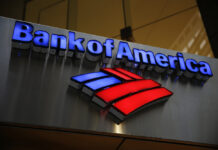
The Rhode Island banking industry is watching the Federal Reserve especially close this month, as the central bank could raise interest rates for the first time since 2006. A rate hike could lead to higher profit margins throughout the sector.
Fed officials in October indicated December could be the month to lift short-term interest rates, according to meeting minutes released last month. The rates have hovered around zero since the global financial crisis of 2008. A move to increase them could indicate the first step toward normalizing rates.
“We’re in the third-longest recovery of all time,” said Michael D. Ice, professor of finance at the University of Rhode Island. “I think it’s pretty certain now, and it’s all about wordsmithing, but essentially they’re telling us in as many words that there’s a likeliness that they will raise [rates].”
Ice recently joined URI after spending about 30 years working on Wall Street. He’s currently teaching undergraduate finance classes, but will also teach at the graduate level once the university launches its master’s course.
“The market is cyclical, so we could go into another recession and if interest rates are zero then what do we do?” he said.
Beyond bringing stability to the economy, raising interest rates will likely have a positive effect on the bottom line of many financial institutions, such as commercial banks, retail banks, investment banks, credit unions and others. Banks typically benefit from the massive cash holdings they have from customers and businesses. If the Fed raised rates it would directly increase the yield on that cash, effectively boosting profitability.
“The sooner rates can normalize in a positive yield curve, the better for the banks,” Ice said.
David V. Devault, chief financial officer at Westerly-based The Washington Trust Co., also believes a December rate hike is becoming more likely.
Fed officials have been flirting with the idea of raising rates for more than a year, but inconsistent job growth and inflation trends have kept them from pulling the trigger.
When and if it happens, however, Devault doesn’t expect the initial increase will have an immediately noticeable effect.
“The impact on the industry will really depend on how much change takes place and how fast it takes place,” Devault said.
The general consensus among financiers is that the Fed – if it elects to raise rates – will increase the rates by a margin of 25 basis points, or 0.25 percentage points, which Ice says isn’t a big enough jump for consumers or banks to see large changes.
“I don’t think consumers and banks have anything to panic about,” Ice said. “You could go to 25 basis points and stay here for months.”
On the consumer side, Ice adds, a rate hike would likely drive more people to refinance loans.
George J. Charette III, president and CEO of Pawtucket Credit Union – Rhode Island’s largest credit union by assets – thinks it would be nice to see rates rise, but he hopes it will happen slowly.
“As long as the Fed takes a very measured approach to increasing rates, yes, we would benefit a little bit,” Charette said.
The credit union predicts the Fed will increase rates either two or three more times in 2016, Charette added.
One potential factor, however, that Charette believes could play a part in dissuading Fed officials from raising the rates is the recent terror attack in Paris, which claimed the lives of at least 130 people. The attack, Charette said, could have a lasting effect on the global markets.
But if investors were previously squeamish about the Fed raising rates, it appears they are responding better to the idea. The Dow Jones Industrial Average grew 247.7 points, or 1.4 percent, the same day the Fed released its meeting minutes in November.
“I think the market now expects it and is OK with it,” Ice said. “I think the growth numbers and jobs numbers are OK. I think everyone is concerned with the economy, which is just OK, because it’s certainly not hot.”
The financial markets went through some volatility earlier this year after major drops were realized in a handful of overseas markets, including a dramatic slide in China. Once the Fed increases rates, Ice says the yield curve will steepen, which he said is “a home run for the banks.”
If nothing else, however, raising the interest rates – if done successfully – could indicate a first step toward moving away from an economy that’s required easy-money policies for seven years.
“That’s what people forget,” Ice said. “Seven years is a long time. We’re still recovering, so rates have been down for a long time. I’m teaching juniors and seniors and they were in middle school in 2008, so they’ve known nothing but very low rates.” •












